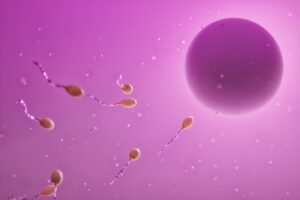For generations, fertility advice has been wrapped in a neat little package of age-old wisdom: just relax, eat well, and let nature take its course. While there’s a nugget of truth in some of these tips, the reality is that traditional fertility advice is falling short for many modern couples. With changing lifestyles, environmental factors, and evolving science, it’s time to challenge the notion that getting pregnant is as simple as lighting a few candles and waiting for the stars to align.
One of the biggest problems with traditional fertility advice is that it often places the burden squarely on the woman’s shoulders. How many times have you heard that stress is the reason you’re not conceiving? While managing stress is important, it’s only one piece of a much larger puzzle. Fertility is a two-person equation, and male factors like sperm quality, count, and motility play just as critical a role as anything happening in the female body. Modern science now shows that nearly half of infertility cases involve male-related factors—a fact that rarely gets the attention it deserves in those old-school advice columns.
Another flaw in traditional advice is the oversimplification of how age affects fertility. Yes, age matters, but it’s not the full story. Many couples in their late 30s and early 40s conceive without issue, while others in their 20s struggle. The real game-changers are underlying health conditions like polycystic ovary syndrome (PCOS), endometriosis, thyroid imbalances, and even undiagnosed autoimmune issues. These factors can quietly sabotage fertility long before age becomes a concern, yet they’re often brushed aside in favor of a one-size-fits-all timeline.
Diet advice is another outdated staple in the fertility world. While it’s great to eat your greens and cut back on junk food, the notion that a clean diet alone will magically boost fertility is overly simplistic. What’s more important is understanding how individual bodies respond to different foods. Blood sugar imbalances, inflammation, and food sensitivities can all impact hormone levels, making personalized nutrition plans far more effective than blanket recommendations to “eat healthy.”
Timing is another area where traditional advice tends to miss the mark. Tracking ovulation is helpful, but modern fertility methods go way beyond temperature charts and calendar apps. At-home ovulation kits, hormone testing, and fertility tracking devices offer much more precise insights into when your body is most fertile. Yet, many couples are still relying on outdated methods that leave too much room for guesswork.
Perhaps the most damaging myth of all is the idea that struggling to conceive means you’re simply not trying hard enough. The emotional toll of infertility is often underestimated, leaving couples feeling isolated and frustrated. Modern fertility care is about more than just biology—it’s about mental health, emotional support, and breaking down the stigma around asking for help.
The good news is that science is catching up, offering couples more tools and resources than ever before. Fertility clinics, holistic health practitioners, and online communities are rewriting the script, offering personalized care that addresses the whole picture—not just a handful of old wives’ tales.
If traditional fertility advice isn’t working for you, don’t be afraid to question it. Advocate for testing, seek out second opinions, and explore both medical and holistic options. The journey to parenthood is different for everyone, and sometimes the best advice is to trust your instincts and rewrite the rulebook altogether.








